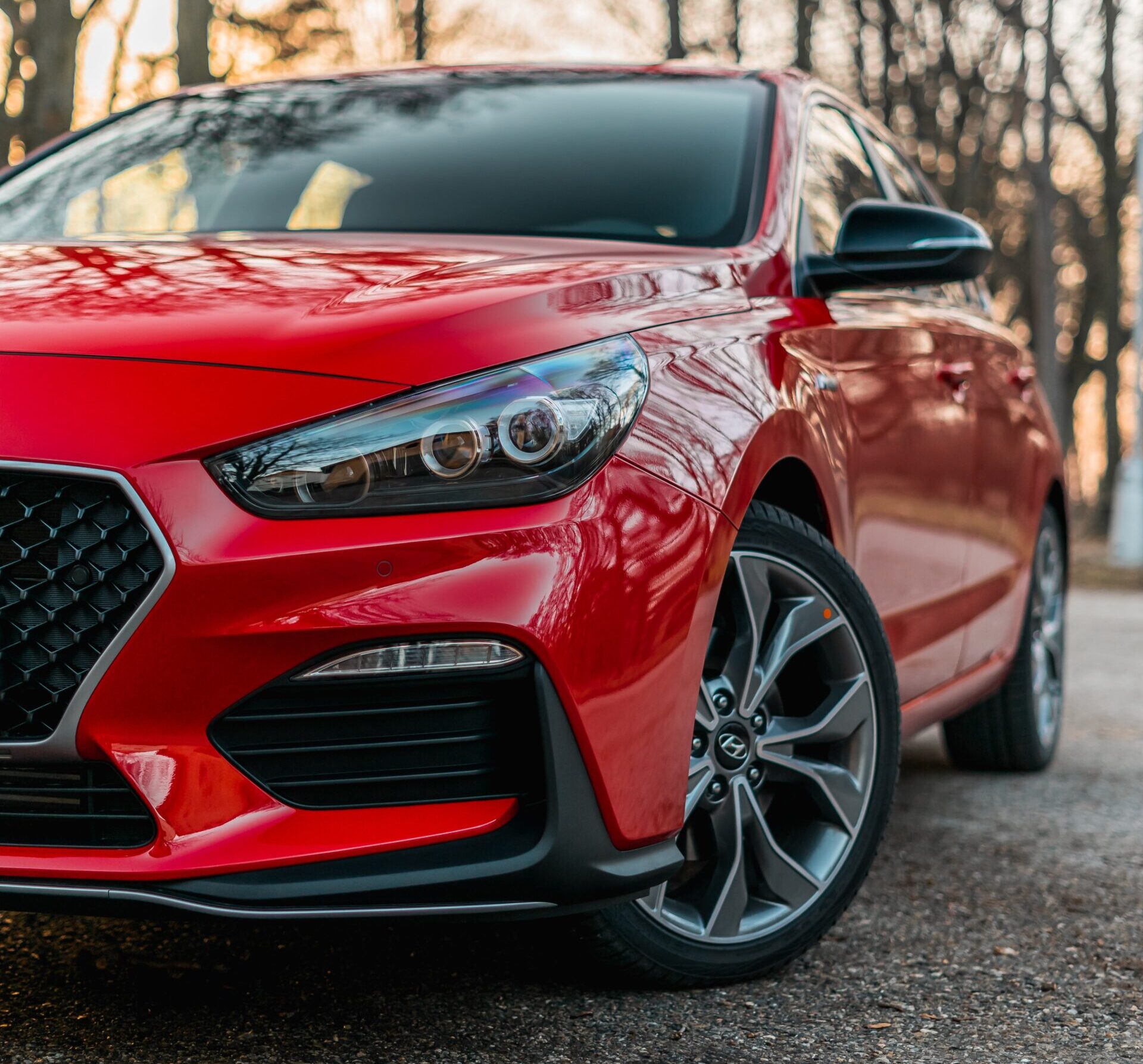Support our educational content for free when you purchase through links on our site. Learn more
Tesla Lease vs Buy: Which Option is Right for You? [2024] 🚗💸
Quick Answer: Leasing a Tesla allows you to enjoy the latest electric vehicle technology without the long-term commitment, while buying a Tesla gives you the freedom to customize and own the vehicle. Both options have their pros and cons, so it ultimately depends on your personal preferences and financial situation.
Imagine cruising down the road in a sleek and eco-friendly Tesla, turning heads and leaving a minimal carbon footprint. The allure of owning or leasing a Tesla is undeniable, but which option is the best fit for you? In this comprehensive guide, we’ll delve into the world of Tesla leases and purchases, exploring the pros and cons of each. By the end, you’ll have a clear understanding of whether leasing or buying a Tesla is the right choice for you. So buckle up and let’s dive in!
Table of Contents
- Quick Answer
- Quick Tips and Facts
- Background: The Rise of Tesla
- Leasing a Tesla: The Ins and Outs
- Buying a Tesla: The Ultimate Ownership Experience
- Pros and Cons of Leasing a Tesla
- Pros and Cons of Buying a Tesla
- Cost to Buy vs Lease a Tesla
- Is There Another Way to Drive a Tesla?
- FAQ
- Conclusion
- Recommended Links
- Reference Links
Quick Answer
✅ Leasing a Tesla allows you to enjoy the latest electric vehicle technology without the long-term commitment, while buying a Tesla gives you the freedom to customize and own the vehicle. Both options have their pros and cons, so it ultimately depends on your personal preferences and financial situation.
👉 CHECK PRICE on: Tesla Official Website | TrueCar | Edmunds | Auto Trader
Quick Tips and Facts
- Leasing a Tesla allows you to drive a new model every few years, while buying a Tesla gives you the freedom to keep the vehicle for as long as you like.
- Leasing a Tesla often requires a lower upfront payment and lower monthly payments compared to buying.
- Buying a Tesla allows you to customize the vehicle to your liking, while leasing restricts modifications.
- Leasing a Tesla typically includes maintenance and warranty coverage, while buying may require additional costs for maintenance and repairs.
- Leasing a Tesla may have mileage restrictions, while buying allows unlimited mileage.
- Leasing a Tesla may not qualify for certain tax credits, while buying may provide tax incentives.
- Leasing a Tesla requires a good credit score, while buying may have more flexible financing options.
Background: The Rise of Tesla

Before we dive into the details of leasing and buying a Tesla, let’s take a moment to appreciate the remarkable journey of this electric vehicle pioneer. Tesla, headquartered in Texas, has revolutionized the automotive industry with its commitment to sustainable transportation. With over 100,000 employees and 45,000 Superchargers across the continent, Tesla has created a 100% renewable global network, making electric vehicles more accessible and appealing than ever before.
Leasing a Tesla: The Ins and Outs
Leasing a Tesla offers a unique opportunity to experience the latest electric vehicle technology without the long-term commitment of ownership. Here’s what you need to know about leasing a Tesla:
Pros of Leasing a Tesla
✅ Short-Term Commitment: Leasing a Tesla allows you to enjoy the latest model for a few years without being tied down to a long-term ownership commitment.
✅ Minimal Maintenance: Teslas require minimal maintenance compared to traditional gas-powered vehicles, saving you time and money on routine upkeep.
✅ Warranty and Maintenance Coverage: Leased Teslas typically come with warranty coverage and maintenance packages, providing peace of mind and potential cost savings.
✅ Freedom to Switch Cars: Leasing offers the flexibility to switch to a new Tesla model once your lease term ends, allowing you to stay up-to-date with the latest advancements in electric vehicle technology.
Cons of Leasing a Tesla
❌ Restrictive Lease Terms: Tesla lease terms can be restrictive, with limitations on mileage, usage for rideshare services, and modifications to the vehicle.
❌ Limited Mileage: Leased Teslas often come with mileage restrictions, typically ranging from 10,000 to 15,000 miles per year. Exceeding these limits may result in additional fees.
❌ Complex Lease Transfers and Terminations: Transferring or terminating a Tesla lease can be a complicated process, requiring careful navigation of paperwork and potential fees.
❌ Potential Tax Credit Limitations: Tesla may not pass on tax incentive savings to leasing customers, limiting the potential financial benefits compared to buying.
❌ Credit Score Requirements: Leasing a Tesla typically requires a good credit score, making it less accessible for individuals with lower credit scores.
Buying a Tesla: The Ultimate Ownership Experience
If you’re looking for the freedom to customize and own a Tesla, buying may be the right choice for you. Here are the key aspects to consider when buying a Tesla:
Pros of Buying a Tesla
✅ Lower Depreciation: Teslas have a lower depreciation rate compared to gas-powered vehicles, making them a potentially wise long-term investment.
✅ Customization: Buying a Tesla allows you to customize the vehicle to your liking, from choosing the exterior color to selecting premium interior features.
✅ Tax Incentives: Buying a Tesla may qualify you for federal electric car tax credits, reducing the final price of the vehicle. Additionally, state incentives may provide further savings.
✅ No Mileage Restrictions: Unlike leasing, buying a Tesla allows you to drive without worrying about mileage restrictions, giving you the freedom to embark on road trips and adventures.
✅ Lower Fuel Costs: Electricity costs less than gas per kilowatt-hour, resulting in potential long-term savings on fuel expenses.
Cons of Buying a Tesla
❌ Finding Used Teslas: Used Teslas can be harder to find compared to traditional gas-powered vehicles, potentially limiting your options.
❌ Uncertain Future Value: The future value of Teslas is uncertain, as it depends on various factors such as technological advancements and market demand.
❌ Battery and Range Degradation: Over time, batteries in electric vehicles may experience degradation, leading to reduced range and potential replacement costs.
❌ Post-Warranty Responsibility: Once the warranty period ends, any maintenance or repair costs become the buyer’s responsibility, potentially adding to the overall ownership expenses.
❌ Finding Qualified Mechanics: Finding qualified mechanics who specialize in electric vehicles, specifically Teslas, can be challenging in some areas.
Pros and Cons of Leasing a Tesla
To help you make an informed decision, let’s compare the pros and cons of leasing a Tesla:
| Aspect | Rating (1-10) |
|---|---|
| Short-Term Commitment | 8 |
| Minimal Maintenance | 9 |
| Warranty and Maintenance Coverage | 9 |
| Freedom to Switch Cars | 7 |
| Restrictive Lease Terms | 6 |
| Limited Mileage | 7 |
| Complex Lease Transfers and Terminations | 6 |
| Potential Tax Credit Limitations | 7 |
| Credit Score Requirements | 8 |
Short-Term Commitment
Leasing a Tesla allows you to enjoy the latest electric vehicle technology without the long-term commitment of ownership. It’s a great option if you want to experience the thrill of driving a Tesla without being tied down to a single vehicle for an extended period.
Minimal Maintenance
One of the advantages of leasing a Tesla is the minimal maintenance required compared to traditional gas-powered vehicles. Teslas have fewer moving parts, reducing the need for routine maintenance and potential repair costs.
Warranty and Maintenance Coverage
Leased Teslas typically come with warranty coverage and maintenance packages, providing peace of mind and potential cost savings. You won’t have to worry about unexpected repair expenses during the lease term.
Freedom to Switch Cars
Leasing offers the flexibility to switch to a new Tesla model once your lease term ends. This allows you to stay up-to-date with the latest advancements in electric vehicle technology and enjoy the newest features and improvements.
Restrictive Lease Terms
Tesla lease terms can be restrictive, with limitations on mileage, usage for rideshare services, and modifications to the vehicle. It’s important to carefully review the lease agreement to ensure it aligns with your lifestyle and needs.
Limited Mileage
Leased Teslas often come with mileage restrictions, typically ranging from 10,000 to 15,000 miles per year. Exceeding these limits may result in additional fees, so it’s essential to consider your driving habits and mileage requirements.
Complex Lease Transfers and Terminations
Transferring or terminating a Tesla lease can be a complicated process, requiring careful navigation of paperwork and potential fees. If you anticipate the need to end or transfer your lease before the agreed-upon term, it’s crucial to understand the associated procedures and costs.
Potential Tax Credit Limitations
Tesla may not pass on tax incentive savings to leasing customers, limiting the potential financial benefits compared to buying. If tax credits are a significant factor for you, buying a Tesla may provide more favorable incentives.
Credit Score Requirements
Leasing a Tesla typically requires a good credit score. If your credit score is lower, you may face challenges in securing a lease or may be subject to less favorable lease terms. It’s important to consider your creditworthiness before pursuing a lease.
Pros and Cons of Buying a Tesla
Now, let’s explore the pros and cons of buying a Tesla to help you make an informed decision:
| Aspect | Rating (1-10) |
|---|---|
| Lower Depreciation | 9 |
| Customization | 8 |
| Tax Incentives | 9 |
| No Mileage Restrictions | 8 |
| Finding Used Teslas | 7 |
| Uncertain Future Value | 7 |
| Battery and Range Degradation | 7 |
| Post-Warranty Responsibility | 7 |
| Finding Qualified Mechanics | 6 |
Lower Depreciation
Teslas have a lower depreciation rate compared to gas-powered vehicles. This means that your investment in a Tesla may hold its value better over time, potentially resulting in a higher resale or trade-in value.
Customization
Buying a Tesla allows you to customize the vehicle to your liking. From choosing the exterior color to selecting premium interior features, you have the freedom to create a personalized driving experience.
Tax Incentives
Buying a Tesla may qualify you for federal electric car tax credits, reducing the final price of the vehicle. Additionally, state incentives may provide further savings, making buying a Tesla a financially attractive option.
No Mileage Restrictions
Unlike leasing, buying a Tesla allows you to drive without worrying about mileage restrictions. Whether you’re planning long road trips or have a daily commute, you can enjoy unlimited mileage without incurring additional fees.
Finding Used Teslas
Finding used Teslas can be more challenging compared to traditional gas-powered vehicles. However, with the growing popularity of electric vehicles, the availability of used Teslas is increasing, offering more options for potential buyers.
Uncertain Future Value
The future value of Teslas is uncertain, as it depends on various factors such as technological advancements and market demand. While Teslas have shown strong resale value in the past, it’s important to consider the potential risks associated with future value fluctuations.
Battery and Range Degradation
Over time, batteries in electric vehicles may experience degradation, leading to reduced range and potential replacement costs. It’s important to factor in the long-term performance of the battery when considering the overall ownership costs of a Tesla.
Post-Warranty Responsibility
Once the warranty period ends, any maintenance or repair costs become the buyer’s responsibility. It’s essential to budget for potential post-warranty expenses and consider extended warranty options for added peace of mind.
Finding Qualified Mechanics
Finding qualified mechanics who specialize in electric vehicles, specifically Teslas, can be challenging in some areas. It’s important to research local service centers and ensure you have access to reliable maintenance and repair services.
Cost to Buy vs Lease a Tesla
To help you compare the costs of buying and leasing a Tesla, let’s take a look at a hypothetical example:
| Method of Purchase | Factors | Lease | Finance | Buy |
|---|---|---|---|---|
| Base price | $88,490 | $88,490 | $88,490 | |
| Destination fee | $1,390 | $1,390 | $1,390 | |
| Acquisition cost | $695 | $695 | $695 | |
| Terms | 10,000 miles | 12,000 miles | 36/48/60/72 months | N/A |
| 12,000 miles | 15,000 miles | |||
| 24 or 36 months | ||||
| Down payment | $7,500 + $9,400 | $4,500 | N/A | |
| Monthly payment | $1,209 to $1,548 | $2,591 to $1,406* | N/A |
*Assuming a 5.69% APR with $85,380 financed.
Interest rates will vary. Tesla offers up to 3 years of free unlimited Supercharging.
Is There Another Way to Drive a Tesla?
If leasing or buying a Tesla doesn’t align with your preferences or financial situation, there is another option to consider: car subscription services. These services allow you to enjoy the benefits of driving a Tesla without the long-term commitment of ownership or the restrictions of a lease. With a car subscription, you can access a Tesla for a monthly fee that covers insurance, maintenance, and other associated costs. It’s a flexible and hassle-free way to experience the thrill of driving a Tesla without the responsibilities of ownership.
FAQ

Why is it better to lease a Tesla?
Leasing a Tesla is a great option if you want to enjoy the latest electric vehicle technology without the long-term commitment of ownership. It allows you to experience the thrill of driving a Tesla for a few years and switch to a new model once your lease term ends.
Read more about “Tesla Model X Lease Price: What You Need to Know … 🚀”
Is it smarter to buy or lease?
The decision to buy or lease a Tesla depends on your personal preferences and financial situation. Leasing offers flexibility and lower upfront costs, while buying provides the freedom to customize and potentially build equity in the vehicle.
Read more about “What Credit Score is Good Enough to Lease a Car? … 🚗”
Does a Tesla lease qualify for tax credits?
Tesla lease terms may not always qualify for certain tax credits. It’s important to consult with a tax professional or Tesla representative to understand the specific tax incentives available for leasing a Tesla in your area.
How much should I put down on a Tesla lease?
The amount you should put down on a Tesla lease depends on your financial situation and preferences. A higher down payment can lower your monthly payments, but it’s important to consider your budget and future financial goals when deciding on the down payment amount.
Read more about “How Much to Lease a Tesla per Month … 🚗💸”
Conclusion

In conclusion, leasing and buying a Tesla both have their pros and cons. Leasing allows you to enjoy the latest electric vehicle technology without the long-term commitment, while buying gives you the freedom to customize and own the vehicle. Consider your personal preferences, financial situation, and long-term goals when making a decision. Whether you choose to lease or buy, driving a Tesla is an exhilarating experience that combines cutting-edge technology with a commitment to sustainability. So, are you ready to embark on your Tesla journey?
Recommended Links:
- Latest Car Lease Deals
- Car Lease Basics
- Credit Score and Car Leasing
- Best Lease Terms
- Electric Vehicle Leases
- How much does it really cost to lease a Tesla Model 3?
Reference Links:

